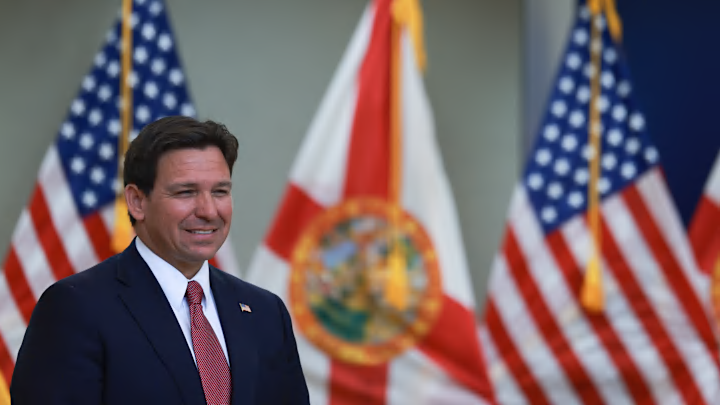When the ball starts rolling in the political field, the moves can be just as thrilling as a championship final. And Ron DeSantis, Florida’s governor, has shown he knows how to play—and play well. The announcement of an $8 million subsidy for infrastructure around Inter Miami's new stadium isn’t just news that makes fans’ eyes sparkle. It's also a calculated move, worthy of a playmaker in the political arena. But while fans are cheering for Lionel Messi and his crew, is everyone catching the subtleties of this "assist" to the team?
The promise of a new stadium for Inter Miami comes packed with high hopes. A 58-acre park, hotels, offices, shops, and plenty of entertainment. On the surface, it looks like a win in every sense: jobs, tourism, economic growth. But it’s in DeSantis’s speech where the game gets interesting. “We don’t give money to build stadiums,” he declared, firmly. But like any good player, he knows the game isn’t won with obvious passes. The governor makes it clear that the focus is on infrastructure—not the stadium itself. Building roads, easing traffic, creating an environment where "everyone can succeed."
Follow MLS Multiplex on X (Twitter).
Since its inception, Inter Miami has always dreamed big. Having a team in the city of Miami, aimed at a global audience, was more than just a sports ambition. It was a strategic move, targeting a multicultural market passionate about soccer and ready to spend. David Beckham, Jorge Mas, and their team understood this from the start. And here’s where DeSantis’s subsidy fits like a perfect pass. He’s not just building a road; he’s paving the way for Inter Miami to become a powerhouse not just in sports, but in the local economy.
Now, let’s be honest, it’s hard not to be cynical when politics and sports collide. After all, we’re talking about a billion-dollar project that will generate over $40 million in tax revenue and create more than 13,000 jobs. It’s a massive deal, one that promises to transform Miami. But like everything in life, there’s always a cost. And who’s really footing the bill? Will the community truly benefit, or is this just a win for a privileged few?
DeSantis’s speech sounds like music to the ears of those dreaming of a prosperous future for Florida. And of course, with the 2026 World Cup on the horizon, this vision seems even more appealing. But we can’t forget that while all eyes are on Messi and his fancy footwork, there’s a much more complex game being played behind the scenes. The governor knows that by investing in infrastructure and not directly in the stadium, he dodges criticism of using public money to favor private interests. He shields himself from accusations while ensuring the project moves forward, benefiting, yes, the team, but also an entire region. It’s a masterful move, where everyone wins—or at least, that’s how it seems.
But what if we take a closer look? What’s really at stake here? Miami Freedom Park promises to be an “economic engine,” as Jorge Mas aptly put it. But will the engine run for everyone, or just for those sitting on the sidelines, watching the game from the VIP seats?
